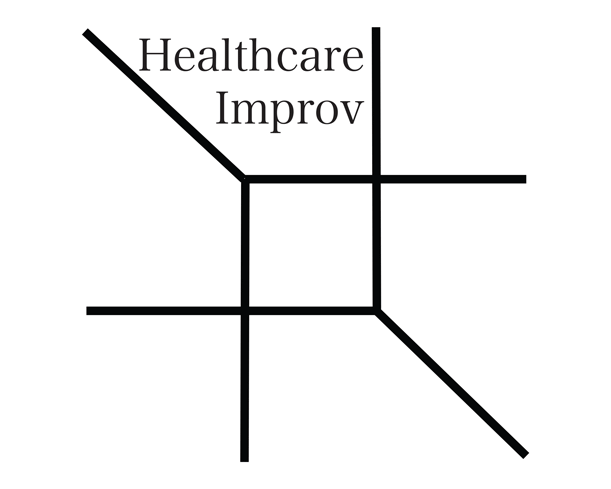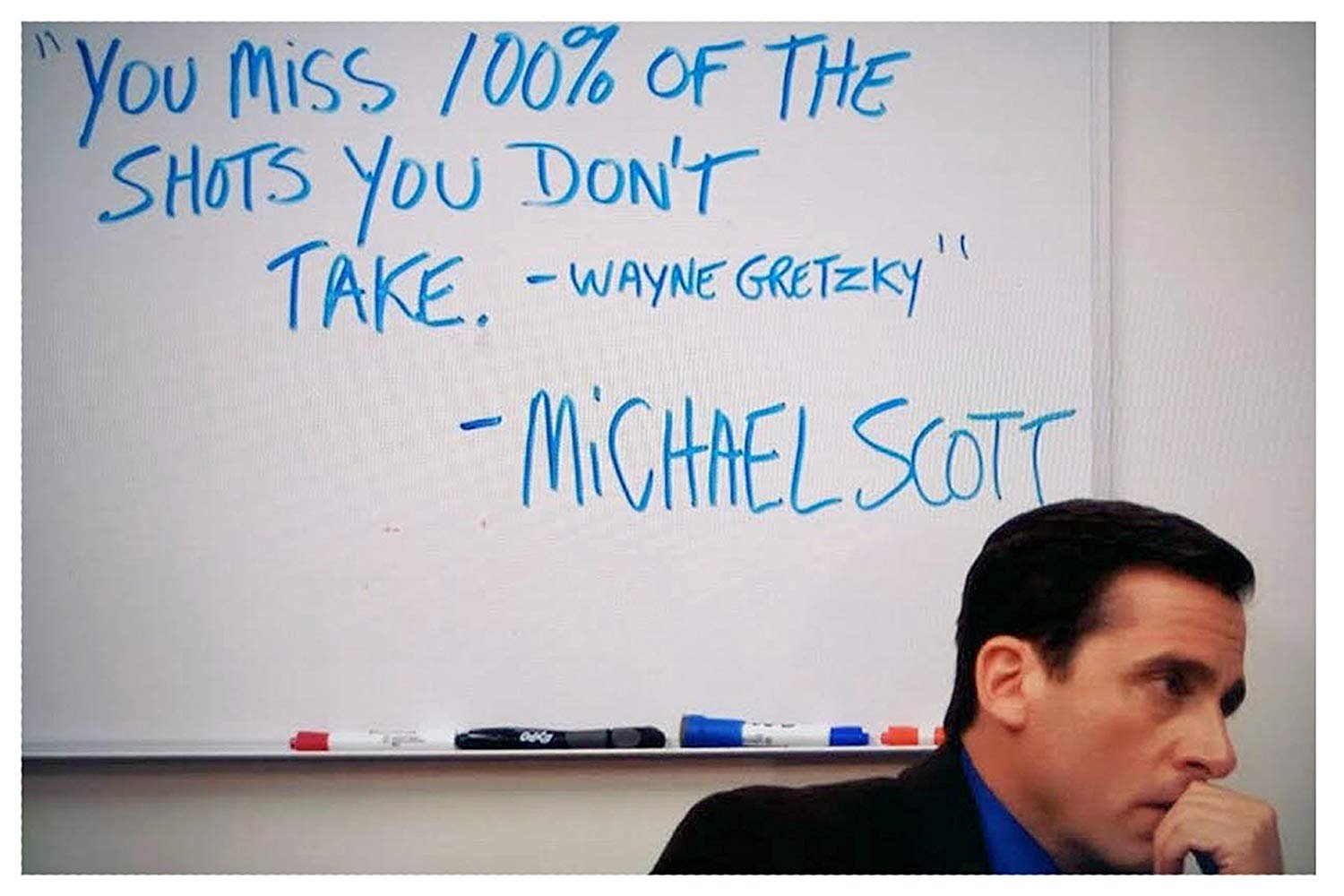Computers communicate with data, humans communicate with stories
As mentioned last week, this month, we will be taking famous improv aphorisms that I have heard repeatedly through the years and then compare them to philosophies and principles that have helped lots of humans! I will again make the case that understanding the improv aphorism is even better because there is a road map for the aphorism to develop into a skill that can be practiced in multiple settings, among them being if you find yourself on an improv stage!.
Why is today important
Today’s aphorism is “Why is today important”. This is a great piece of side coaching at improv practice to encourage improvisors to find the point of the scene. This aphorism is a reminder that the audience has a limited amount of attention and there is no time to small talk on stage, there has to be a reason for the audience (and other improvisors) to care about what is happening on stage. It does not need to be a grand, illustrious, emotion-soaked reason. But there should be a reason for what is happening on stage. It plays into trying to understand the perspective of your character. This becomes less of a challenge if you understand the perspective of your character. Again, that perspective doesn’t need to be a grand, illustrious, emotion-soaked perspective. It just forces you to have a perspective to understand what is important about what is happening on stage. When I step on stage, I may not know why today is important, but I know that I need to find it out to make the scene work. In fact, the joy of some scenes comes from finding out why today is important. It is possible to have a fun and silly scene where we don’t learn why today is important. For long form improv performances, where the expectation that the scene partners connect with each other, the scenes connect with each other, and the whole show has themes develop, taking a perspective to show why each scene is important makes achieving those goals infinitely easier, more joyful, and is what leads to the unbelievable sensation that every improvisor knows because it is what keeps them coming back to the stage
Now to discuss how this wisdom has been stated in other words by smart people. The first discussant in today’s entry is Mihaly Csikszentmihalyi, the author of Flow: The Psychology of Optimal Experience. There is all sorts of content about what Flow is, but for the sake of getting everyone on the same page, Flow and Flow State is when you are completely engrossed in an activity and each action flows from one to the next. It is when there is a perfect balance between the challenge presented and the skill required to rise to meet the challenge. Mihaly Csikszentmihalyi interviewed thousands of people across various cultures, various degrees of modernity, and various degrees of wealth to find out what made people the happiest. He found that the happiest people were the people who most frequently entered the Flow State and often arranged life to seek out new Flow experiences.
“One of the most frequently mentioned dimensions of the flow experience is that, while it lasts, one is able to forget all the unpleasant aspects of life. This feature of flow is an important by-product of the fact that enjoyable activities require a complete focusing of attention on the task at hand – thus leaving no room in the mind for irrelevant information”
In the book, he states “One of the most frequently mentioned dimensions of the flow experience is that, while it lasts, one is able to forget all the unpleasant aspects of life. This feature of flow is an important by-product of the fact that enjoyable activities require a complete focusing of attention on the task at hand – thus leaving no room in the mind for irrelevant information”. This quote exemplifies the idea that in flow states or in the moments that make people the happiest, we are aware of “why is today important” and in fact, eliminate anything not related to why today is important. Understanding “Why is today important” is also a great way to find autotelic activities. Autotelic activities are the activities that are worth doing just to do them. They are activities that someone would do even if there were no external reward or reason to do them. There may be external results that occur from the activity, but it is not the reason to do the activity. Understanding what is important about the activity can help divide between the activities being done for an external cause and the activities that are important for the sole reason of they are important. That is developing a perspective and understanding it as autotelic activies are different for every person. The act of going on an improv stage and giving meaning to the activities of a character that was just created to help make connections with other characters that were just created will make developing connections with the people encountered each day even easier. It all starts with the practice of understanding Why is today important. In fact, in his book Creativity, Mihaly Csikszentmihalyi says, “Creativity is about capturing those moments that make life worth living.” So understanding “Why is today important” is essential to creativity and therefore capturing the moments that make life worth living, and it is practiced everytime you step on stage for an improv performance or rehearsal.
Next is considering the work of Cal Newport. In his book Deep Work, he discusses ways to be more productive and the benefits of working deeply, he mentions The 4 Disciplines of Execution for business that informed his development of his personal strategy for doing deep work. The first of these 4 disciplines mentioned is Focus on the Wildly Important. The section is followed by the quote from that 4DX, “The more you try to do, the less you actually accomplish”. If I could describe what makes a novice improvisor compared to a professional improvisor, it would essentially be that quote. Every year there is a comedy festival in Omaha and the professional improvisors that would come would have shows every night of the festival. The most striking thing I noticed about the way they performed improv was that everything was so simple. There was almost nothing said or done that was not important. This is opposed to the beginner improvisor quickly moving from superficial idea to superficial idea (it is not just doctors who take improv class btw!)
The final author who recommends thinking about “Why is today important” is Lisa Feldman Barrett. Her two books How Emotions Are Made and Seven and a Half Lessons About the Brain are wonderful explorations of our emotional world. Here, watch her TED talk
The main argument is that our brains use emotions as shorthand for predictions based on our experiences and understanding of the world. So the way to develop emotional intelligence is to improve the brain’s predictions. The brain will make inferences on its own so taking part in the predictions is looking at your experiences and asking “Why is this important”. Things that provide new perspectives and new experiences help predictions become more accurate and better predictions about what the events in life represent. The predictions that your brain will make are inevitable. There is nothing inherently good about new experiences. The benefit comes when the new experience gives a more accurate reflection of the world to help move through it by training your brain with better predictions. New experiences can provide worse predictions unless the question of Why is today important is considered and practiced (feel free to reference almost any story of me in my 20’s). Improv is a great venue to practice your predictions about the importance of events and how a person makes decisions based on new information.
Now some quotes about living in the present while understanding why today is important
“To be sure, man’s search for meaning may arouse inner tension rather than inner equilibrium. However, precisely such tension is an indispensable prerequisite of mental health. There is nothing in the world, I venture to say, that would so effectively help one to survive even the worst conditions as the knowledge that there is a meaning in one’s life. There is much wisdom in the words of Nietzsche: “He who has a why to live for can bear almost any how””
“When a person can’t find a deep sense of meaning, they distract themselves with pleasure.”
“Our life always expresses the result of our dominant thoughts”
“Education is an admirable thing, but it is well to remember from time to time that nothing that is worth knowing can be taught”
This applies to my job in the hospital quite aptly. In fact, I make the argument quite often that the entirety of my job is prioritizing what is important for the day. With many patients, that is a negotiation. Often, the patient’s priority is getting out of the hospital, but mine is treating their illness with mechanisms only found in the hospital (IV antibiotics, support with getting out of bed, etc…). This is often difficult because I know that if I was on the other side of the discussion, going home would be my main priority and what was most important to me. It is my job to communicate what is important about the day to the patient and make them a partner in developing the treatment plan that is consistent with their goals. Our hospital has Open Notes, so the patient and their family have access to essentially the entirety of their medical record. If physicians and healthcare providers are going to have any role in what happens, it is essential that we can identify and communicate to patients and each other what are the most important parts affecting our patients’ care. I forget who said it, but I repeat it all of the time, “Computers communicate by data, humans communicate by stories.” If I am to effectively communicate with my patients and other healthcare providers, I need to assemble the data into a story and prioritize what is the most important part.
Ok, until next time!


